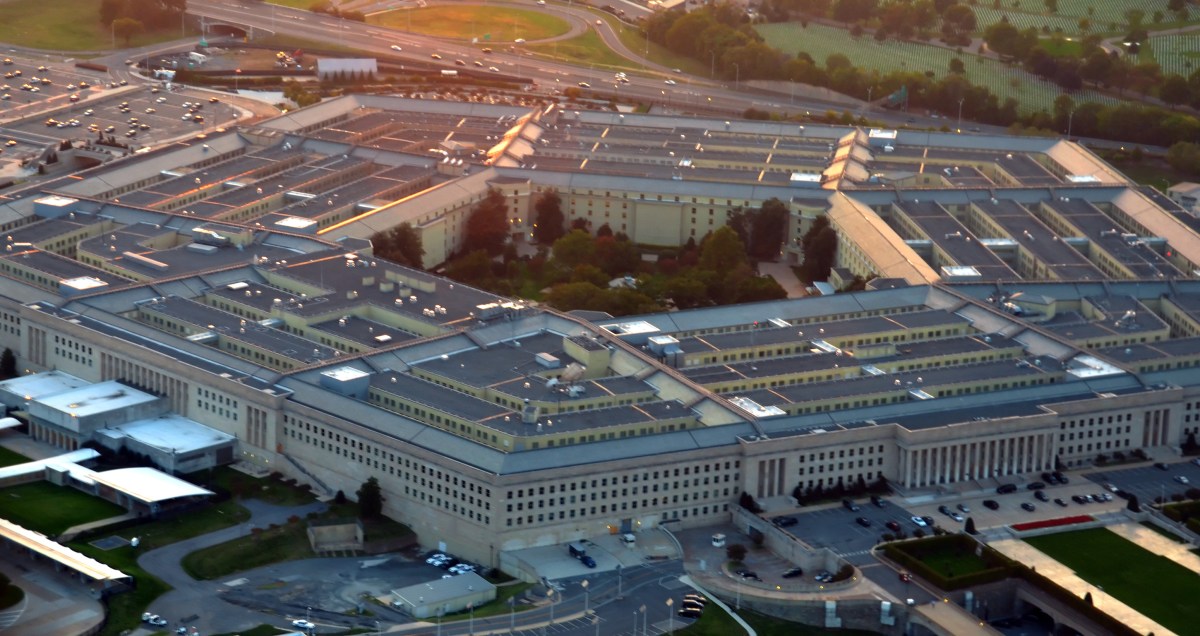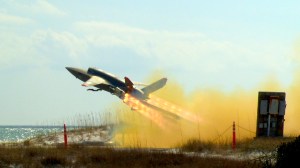Pentagon contemplating AI hub for Replicator initiative; Hill briefings underway

Pentagon officials are briefing members of the Congress on their latest plans for the Replicator autonomous systems initiative, as the department envisions creating an artificial intelligence hub to support the rollout of related technologies.
DefenseScoop reported earlier this month that Deputy Secretary of Defense Kathleen Hicks had recently selected a small number of capabilities — but not specific systems — that will be prioritized for the initial tranche, and that DOD officials planned to brief lawmakers in January. Those briefings are now underway, Aditi Kumar, deputy director for strategy, policy and national security partnerships at the Defense Innovation Unit, said Wednesday at a Hudson Institute event.
The goal for the first increment is to deliver thousands of relatively low-cost, “attritable” systems by early- to mid-2025 to help the U.S. Indo-Pacific Command counter China’s military buildup.
“Replicator is end to end … It is delivering the autonomous attritable systems into the hands of the warfighter. And so we are looking at all aspects of that project lifecycle. A lot of the initial focus was, let’s define the operational need, let’s make it really crisp. And we worked very closely with Indo-Pacom to do that … down to the specifics of: What day is it? What is the weather? What is happening? What are the target sets that we’re going after? And what are the types of capabilities that you need, no kidding, to really, you know, make a difference in that scenario?” Kumar said.
DIU has been tapped to help implement the initiative with support from the Pentagon’s Chief Digital and AI Office (CDAO).
“The training piece of this is a huge focus. The information strategy piece of this is a huge focus. And so we’ve got all of the right experts, data and AI training … CDAO is a great partner in this helping us think through, you know what that piece needs to look like. So it’s bringing all of those together so that when we deliver this in the end, it is the full capability,” Kumar said.
Margaret Palmieri, deputy chief digital artificial intelligence officer, said autonomy is an area where the CDAO is working to help the Pentagon push out new capabilities.
She noted previous work done by the Joint Artificial Intelligence Center (JAIC), which was eventually folded into the CDAO along with other Defense Department offices when the new organization was stood up.
“The Joint AI Center had started a really interesting project called ‘smart sensor’. They wanted a fully autonomous MQ-9 [drone], not just the aircraft vehicle, but the sensors. And so for several years, DOD has been looking at how do you really do unmanned autonomy enabled by AI. And so Replicator is actually just here at a really great time. We’re looking at, you know, how to do a … AI data hub as part of Replicator to accelerate that learning across multiple companies and different services. And so I think the autonomy use cases is front and center in our mind. And to bring those best practices, we are really focused on the scaffolding we call it — which are kind of not necessarily all of the potential AI projects that we could do inside of CDAO, but really how do we enable all of the other organizations inside the government to have access to labeled data and not have to go find it themselves?” Palmieri said at the Hudson Institute event.
She didn’t say when the envisioned hub might be established.
Now that Hicks has made her capability picks, Pentagon officials are in talks with lawmakers about the road ahead.
“We’re in the middle of briefing them right now on the capability selection, and all of the things that I just laid out our plans for delivering the capabilities. And I think it’s an interesting time, obviously, with the budget cycle to go to Congress with a portfolio. And so we’re working with them on the best funding strategies to realize what we’re trying to do with Replicator [increment] 1 … They’re a partner to us as we try to execute these initiatives, and Replicator is obviously going to be the priority over the coming weeks,” Kumar said.
Defense officials have indicated that they may be tight-lipped about certain aspects of Replicator, including which specific systems are selected to meet the capability needs.
“The services are identifying the specific systems. Our next step is to work with Congress. So we will be briefing them, we’re in the middle of briefing them, in fact, and having the funding conversation. I think on the public announcement, that’s going to be something that happens after we have completed our briefings to Congress. And it is also part of this broader information strategy that I mentioned is — we have to think through, you know, what parts of Replicator we want to speak about publicly, and then what parts we want to reserve because that is what the operational needs mandate. And so the department is working through those, and then we’ll share information at the appropriate time,” Kumar said.






